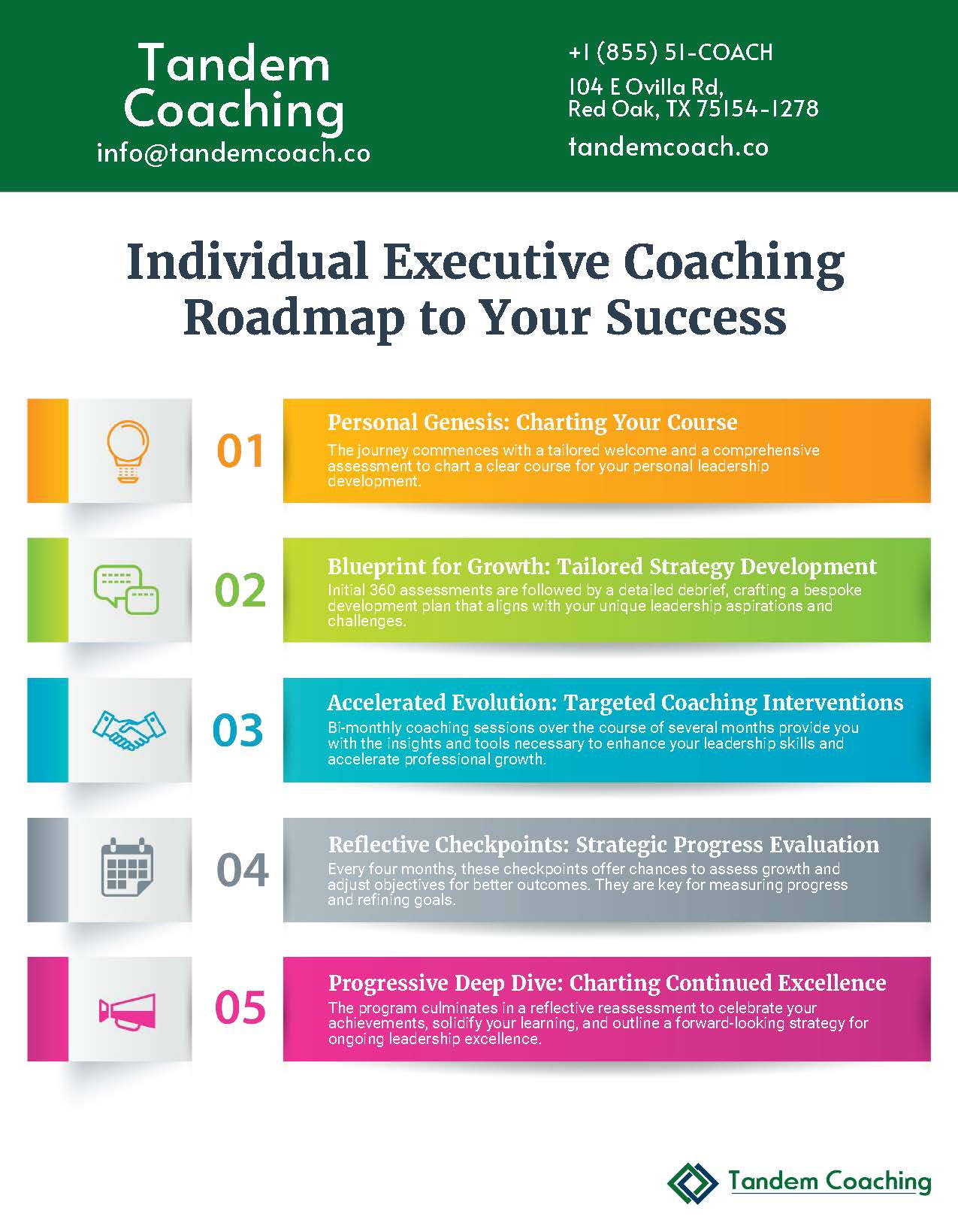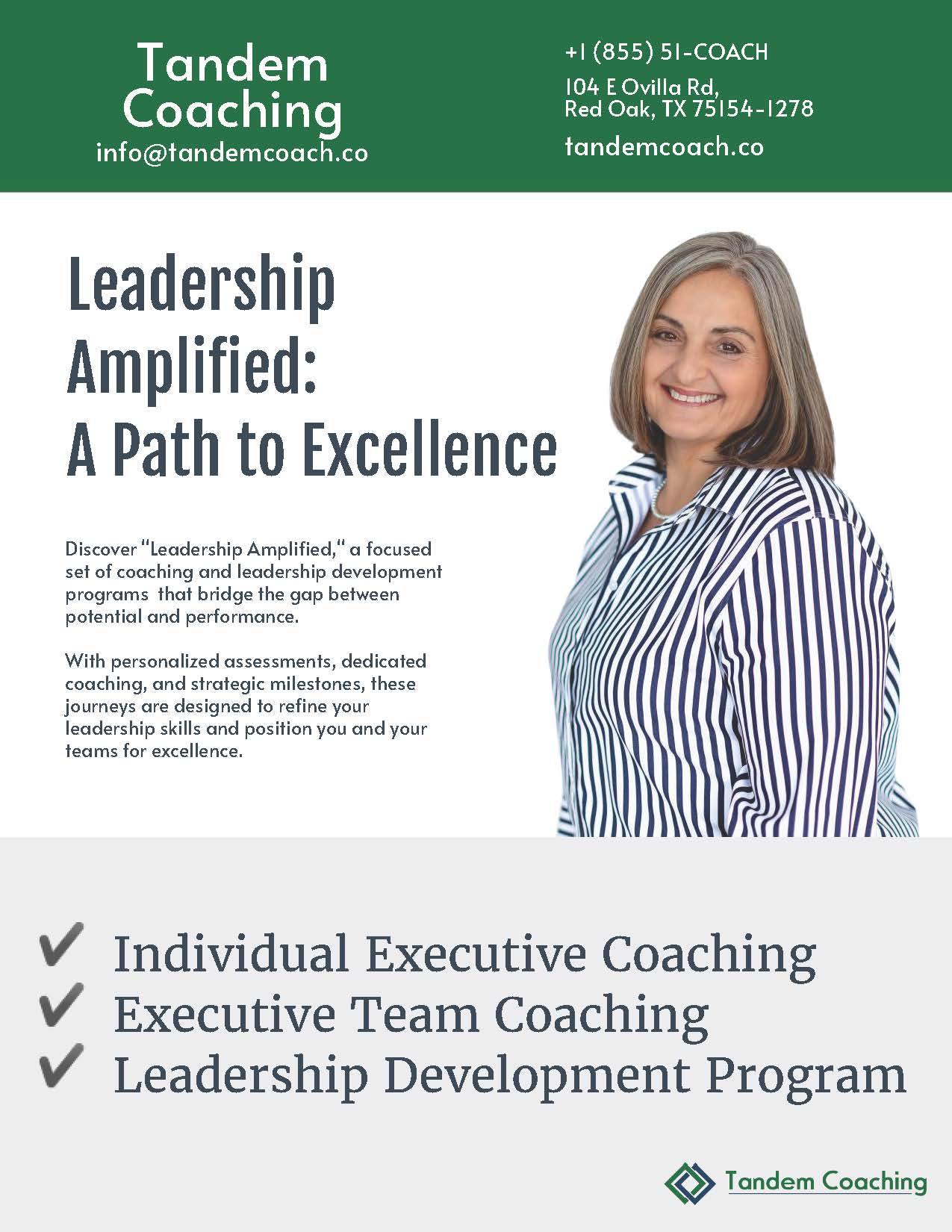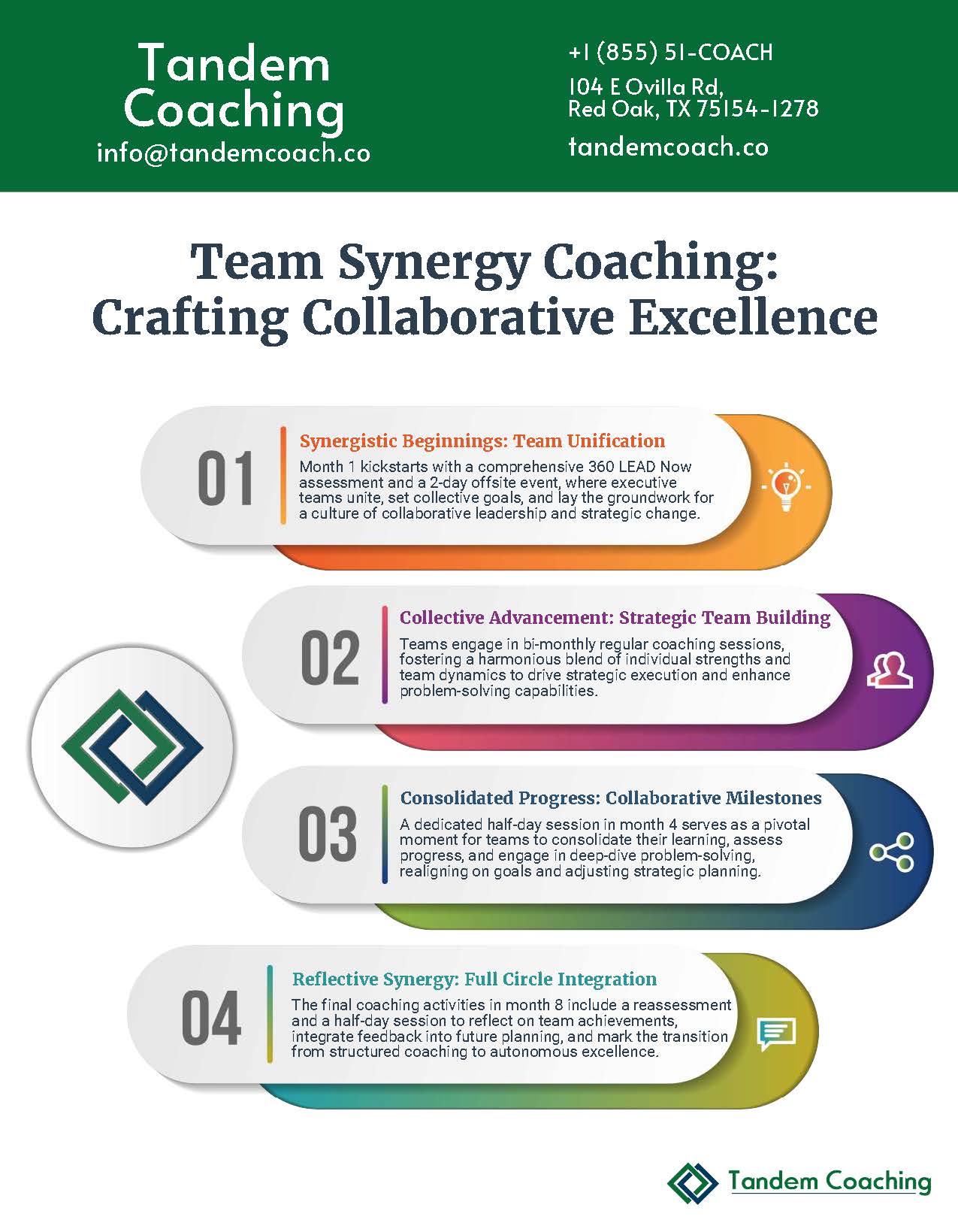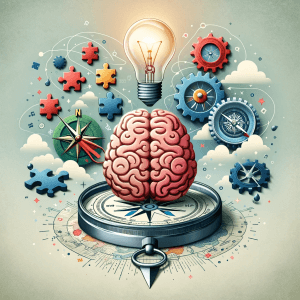Effective leadership is essential to organizational success. However, developing top-notch leaders requires more than innate talent; it necessitates structured methodologies and leadership tools that guide individuals through the complexities of leadership.
The leaders of the future need a whole new set of skills. According to the Ready for Anything study on the future readiness of leaders, the most important skills are the willingness to take risks, the ability to provide clarity and direction, and the ability to embrace ambiguity and uncertainty.
This article delves into the best leadership tools that can transform managers into exceptional leaders.
TL;DR – Top Leadership Development Tools
The top leadership development tools include
- Coaching
- Mastermind groups
- 360-degree feedback
- Mentoring
- Experiential learning
These methodologies provide structured and comprehensive approaches to developing essential leadership skills, fostering growth, and driving organizational success. We will cover them in more detail in the blog below.

What are Leadership Development Tools?
Leadership development tools are structured methods and practices designed to enhance individuals’ leadership capabilities. These tools help leaders at all levels develop critical skills such as strategic thinking, communication, decision-making, and emotional intelligence.
They provide a framework for continuous learning and growth, ensuring that leaders are equipped to handle the dynamic challenges of modern organizations.
What is a Leadership Development Toolkit?
A leadership development toolkit is a collection of resources and methodologies used to develop organizational leaders.
This toolkit often includes a mix of coaching sessions, peer-to-peer support, mentoring relationships, experiential learning opportunities, soft skills workshops, and feedback mechanisms.
The aim is to provide a comprehensive approach to leadership development, addressing various aspects of leadership and catering to different learning styles.

How Do Leadership Development Tools Help?
Leadership development tools help by providing structured guidance and support for leaders to develop their skills.
According to a recent study, great leaders possess five top skills: self-development, team development, strategic thinking and acting, ethical practice and civic-mindedness, and innovation.
These are best fostered by a development program composed of various methods. These tools of leadership also create opportunities for leaders to receive feedback, reflect on their experiences, and continuously improve. By using these tools, organizations can cultivate a culture of leadership excellence, ensuring a steady pipeline of capable leaders ready to drive success.

5 Best Leadership Development Tools
So, what needs to go into your leadership toolkit? What are the essential leadership tools that every executive team should provide?
At Tandem Coaching, we can help you assemble your ideal leadership toolkit. Connect with us to get started.
1. Coaching
Coaching is a personalized development process where a coach works one-on-one with a leader to enhance their skills and performance. This relationship focuses on setting goals, overcoming challenges, and achieving personal and professional growth.
Benefits: Coaching provides tailored support, immediate feedback, and accountability. It helps leaders develop self-awareness, improve problem-solving abilities, and build confidence. Various coaching methodologies, such as transformational coaching, executive coaching, and performance coaching, cater to different leadership needs.
2. Mastermind Groups
Mastermind groups are peer-to-peer mentoring groups where leaders come together to share experiences, discuss challenges, and provide mutual support. These groups often involve facilitated discussions and collaborative problem-solving.
Benefits: Mastermind groups provide a collaborative learning environment, enabling leaders to gain diverse perspectives and collective wisdom. They foster accountability, encourage innovative thinking, and build a sense of community. Participants benefit from their peers’ shared knowledge and experiences, leading to improved leadership skills and personal growth.
3. 360-Degree Feedback
360-degree feedback is a comprehensive evaluation tool that gathers feedback from an individual’s supervisors, peers, subordinates, and sometimes clients. This feedback provides a well-rounded view of the leader’s strengths and areas for improvement.
Benefits: 360-degree feedback promotes self-awareness and personal development. It provides leaders with valuable insights into how others perceive them, highlighting strengths and identifying areas for growth. This tool encourages open communication, enhances emotional intelligence, and supports continuous improvement.
4. Mentoring
Mentoring involves a more experienced leader providing guidance and advice to a less experienced individual. This relationship focuses on long-term career development and knowledge sharing.
Benefits: Mentoring fosters a supportive environment where leaders can learn from others’ experiences. It helps build networks, enhances knowledge transfer, and supports succession planning. Mentors provide valuable insights and perspectives, assisting mentees in navigating their career paths and developing leadership skills.
5. Experiential Learning
Experiential learning involves learning through hands-on experiences and real-world projects. Leaders engage in activities that mimic real-life challenges, allowing them to apply their skills in practical situations.
Benefits: Experiential learning enhances problem-solving abilities, fosters creativity, and builds resilience. It allows leaders to experiment, take risks, and learn from their successes and failures. This method helps leaders develop critical thinking skills and adapt to changing circumstances.

List of the Best Leadership Assessment Tests
This section will examine the leadership development assessment tools that can help us assess a leader’s strengths, abilities, and needs.
1. Lead Now! by Stewart Leadership
Description: Lead Now! is a comprehensive leadership development framework designed by Stewart Leadership. It focuses on four core areas: Leading Self, Leading People, Leading Work, and Leading Change.
Benefits: This framework provides actionable strategies and tools for leaders to enhance their effectiveness across various dimensions of leadership. It promotes holistic development and helps leaders navigate complex organizational challenges.
2. Genos Emotional Intelligence (EI)
Description: The Genos EI assessment measures emotional intelligence, focusing on how well individuals understand and manage their own emotions and those of others.
Benefits: Enhancing emotional intelligence helps leaders improve empathy, communication, and relationship-building skills. It leads to better decision-making and a more positive organizational culture.
3. StrengthsFinder
Description: StrengthsFinder identifies an individual’s top strengths and talents. This assessment helps leaders focus on leveraging their natural abilities to achieve success.
Benefits: StrengthsFinder promotes a strengths-based approach to leadership, encouraging leaders to build on their inherent talents. It helps maximize potential and improve performance.
4. Myers-Briggs Type Indicator (MBTI)
Description: The MBTI assesses personality types based on preferences in how individuals perceive the world and make decisions. It helps leaders understand their personality traits and how these influence their leadership style.
Benefits: MBTI provides insights into personality strengths and potential blind spots. It enhances self-awareness and helps leaders improve their interactions with others by understanding different personality types.
5. Leadership Circle
Description: The Leadership Circle assessment combines competency-based and consciousness-based assessments to provide a comprehensive view of a leader’s effectiveness.
Benefits: This assessment helps leaders identify their strengths and areas for development, fostering a deeper understanding of their impact on the organization. It promotes personal and professional growth by integrating feedback into actionable insights.
6. DiSC Assessment
Description: The DiSC assessment evaluates an individual’s behavior and communication style based on four primary traits: dominance, influence, steadiness, and conscientiousness.
Benefits: DiSC helps leaders understand their behavioral tendencies and how they interact with others. It promotes effective communication, teamwork, and conflict resolution.

Frequently Asked Questions (FAQs)
Here are some common questions about leadership development tools:
How Can Leadership Development Tools Be Customized for Different Industries?
Leadership development tools can be customized to meet different industries’ specific needs and challenges. Customization can include industry-specific content, case studies, and real-world scenarios relevant to the industry. Additionally, leadership tools can be tailored to align with the organization’s strategic goals, leadership competencies, and cultural values. Personalized coaching and mentoring can address individual development needs, ensuring a more effective and relevant leadership development experience.
At Tandem Coaching, we work closely with each client to ensure our leadership development program suits their needs and goals.
What Are the Common Challenges in Implementing Leadership Development Tools?
Some common challenges in implementing leadership development tools include:
- Resistance to Change: Leaders and employees may resist adopting new development methodologies.
- Time Constraints: Balancing development activities with daily responsibilities can be challenging.
- Resource Allocation: Ensuring adequate resources, such as funding and skilled facilitators, can be difficult.
- Measuring Effectiveness: Evaluating the impact of leadership development tools on performance and organizational success can be complex.
- Sustaining Engagement: Maintaining long-term commitment and engagement in development programs requires continuous effort and support.
Connect with us to help you overcome these challenges and implement the leadership development plan best suited to your organization at this time.
How Do Leadership Development Tools Align with Organizational Goals?
Leadership development tools align with organizational goals by enhancing the skills and capabilities of leaders, ensuring they can effectively drive the organization’s strategic objectives. These leadership instruments help leaders align their actions with the organization’s vision and goals by focusing on developing competencies such as strategic thinking, communication, and decision-making.
Additionally, leadership development fosters a culture of continuous improvement, innovation, and accountability, supporting long-term organizational success.
Conclusion
Investing in leadership development tools is essential for cultivating influential leaders who can navigate the complexities of modern organizations.
Leadership tools such as coaching, mentoring, mastermind groups, experiential learning, and 360-degree feedback provide structured and comprehensive approaches to developing critical leadership skills. These methodologies enhance communication, foster collaboration, and drive innovation, ultimately contributing to organizational success.
By tailoring these tools to meet the unique needs of different industries and aligning them with strategic goals, organizations can create a robust leadership pipeline that ensures sustained growth and competitiveness.
Embrace these leadership development tools to unlock your leaders’ full potential and drive your organization toward excellence. Connect with us today to get started on your journey.



Boost Your Leadership Team Success!
Take your leadership team to the next level and achieve great results with our executive coaching.
Learn how our coaching and ASPIRE method can change things for you—get a free brochure to begin your journey.
About the Author
Cherie Silas, MCC
She has over 20 years of experience as a corporate leader and uses that background to partner with business executives and their leadership teams to identify and solve their most challenging people, process, and business problems in measurable ways.















